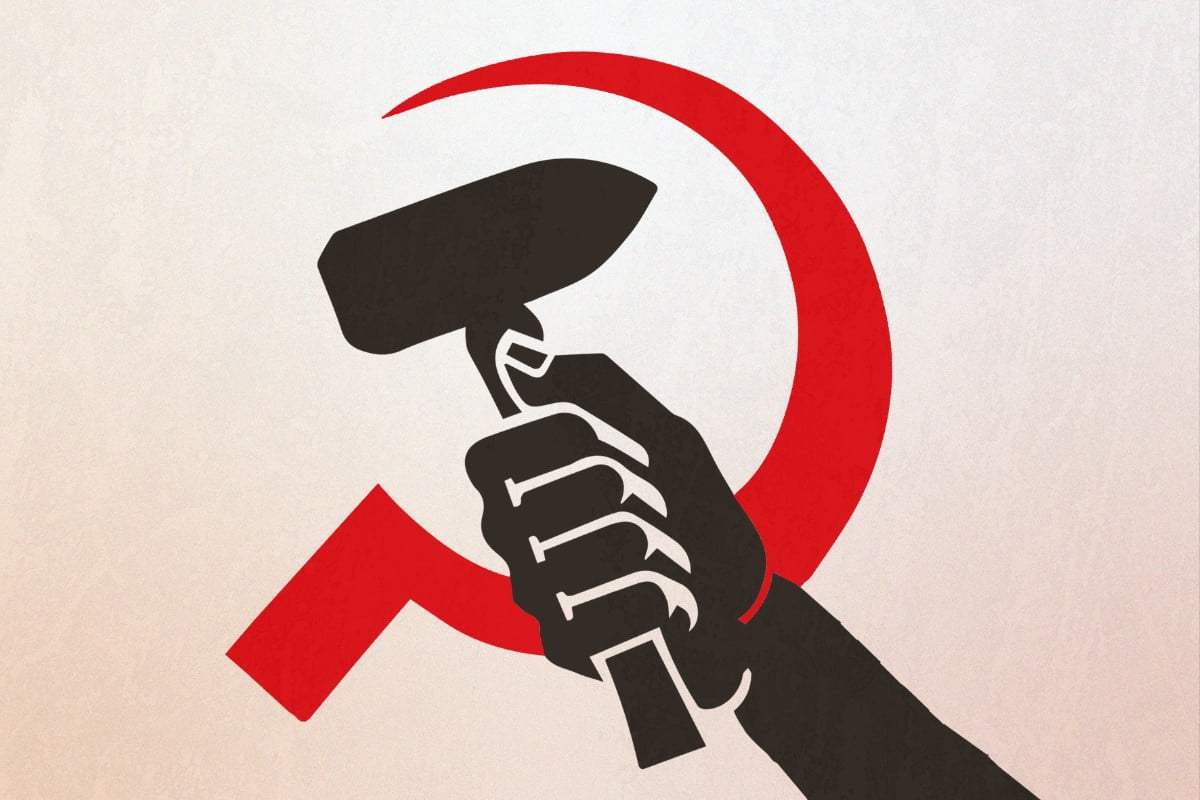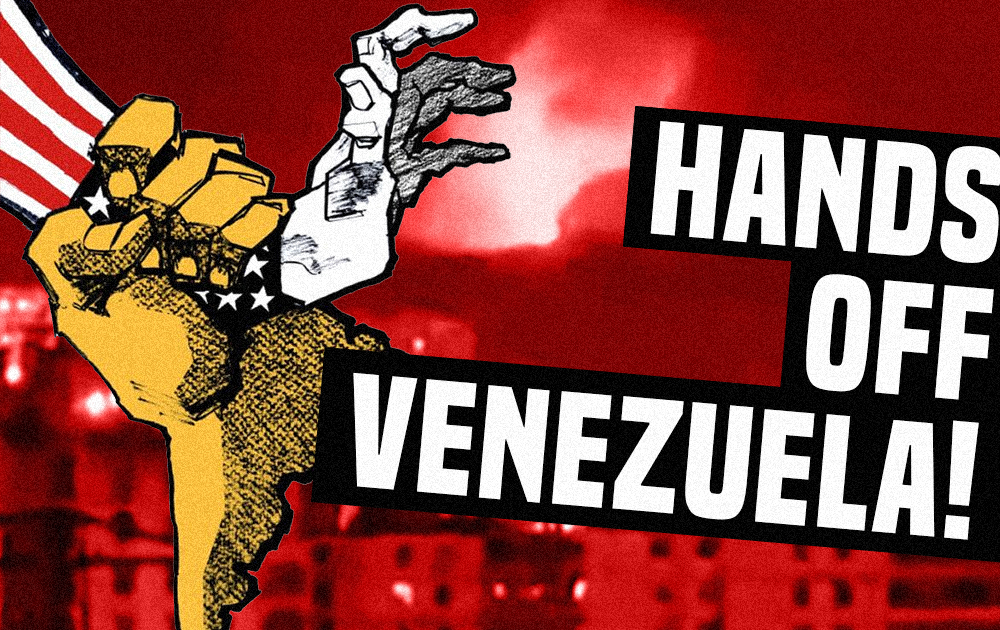The recent launch of the Manifesto of the Revolutionary Communist International marks a historic event. It is a clarion call to draw together the genuine communists of the world.
At the outset, the Manifesto deals not with secondary questions, but the fundamentals facing the revolutionary movement. It is being launched at a time when world capitalism finds itself in an existential crisis. This crisis is an expression that the system has reached its limits. Such situations are by no means unusual in history.
“Unable to carry society further,” states the Manifesto, “it has now reached the point of no return”.
The Manifesto represents the founding document of a new Revolutionary Communist International, which will be launched in June this year, at our world school of communism.
Crisis
The present crisis is an existential crisis, expressed not only in the stagnation of the productive forces, but also in a general crisis of culture, morality, politics, and religion. A gulf has opened up in society as never before, between rich and poor, a symptom of the pervasive sickness of capitalism.
The system has become rotten ripe for overthrow. “Its eventual downfall is inevitable and cannot be avoided,” explains the Manifesto.
The bourgeois attempts to get out of the crisis only produce new insolvable contradictions.
“The 2008 financial crisis was a major turning point,” it explains. “The truth is that world capitalism has never recovered from that crisis.”
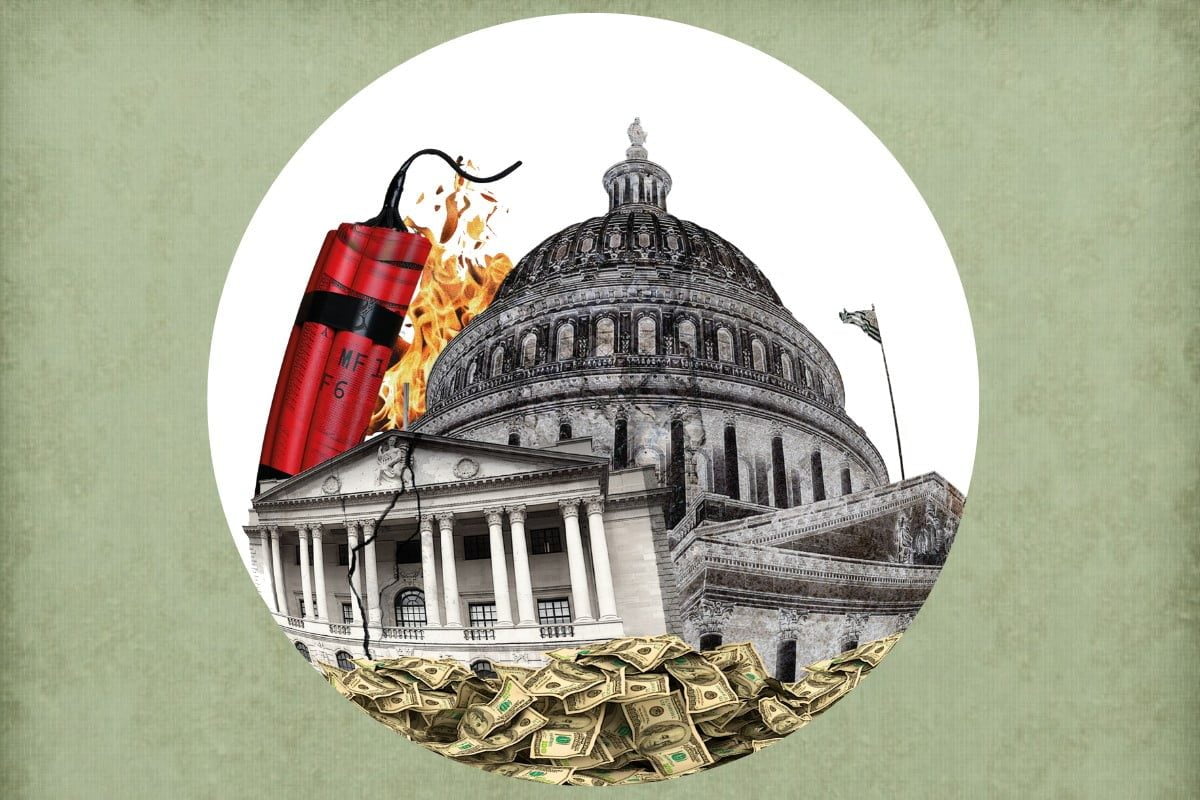
They have pushed the system far beyond its natural limits by flooding the world economy with liquidity. This, in turn created massive inflation and colossal debts.
“The global economy is faced with the prospect of a perfect storm in which one factor feeds upon another to produce a sharp downward spiral,” explains the Manifesto.
We have entered an epoch of crisis, wars, collapse, and increasing misery.
The main causes of capitalist crises are, on the one hand, private ownership of the means of production, and, on the other, the straitjacket of the national market, which is far too narrow to contain the productive forces that capitalism has created.
They were partially and for a time able to overcome the crisis through ‘globalisation’, the expansion of world trade and an intensification of the international division of labour. But this has now given way to protectionism. In the USA, it is expressed under the slogan of ‘America First’, where the rest are left far behind.
This, states the document, “has inevitably led to an enormous exacerbation of the contradictions between nations and the proliferation of military conflicts and protectionism”.
Horror without end
As a consequence, instability reins everywhere. The violence of imperialism is expressed in terms of devastation, death, and destruction. There has never been such an unstable situation in history.
“The cold cruelty of US imperialism, and also its repulsive hypocrisy, has been clearly exposed by the horrific events in Gaza,” states the Manifesto. “It has been an active participant in the atrocious massacre perpetrated on helpless men, women, and children by the monstrous Israeli regime.”
There has been a major shift in world relations between the powers, with the rise of some powers and the decline of others.
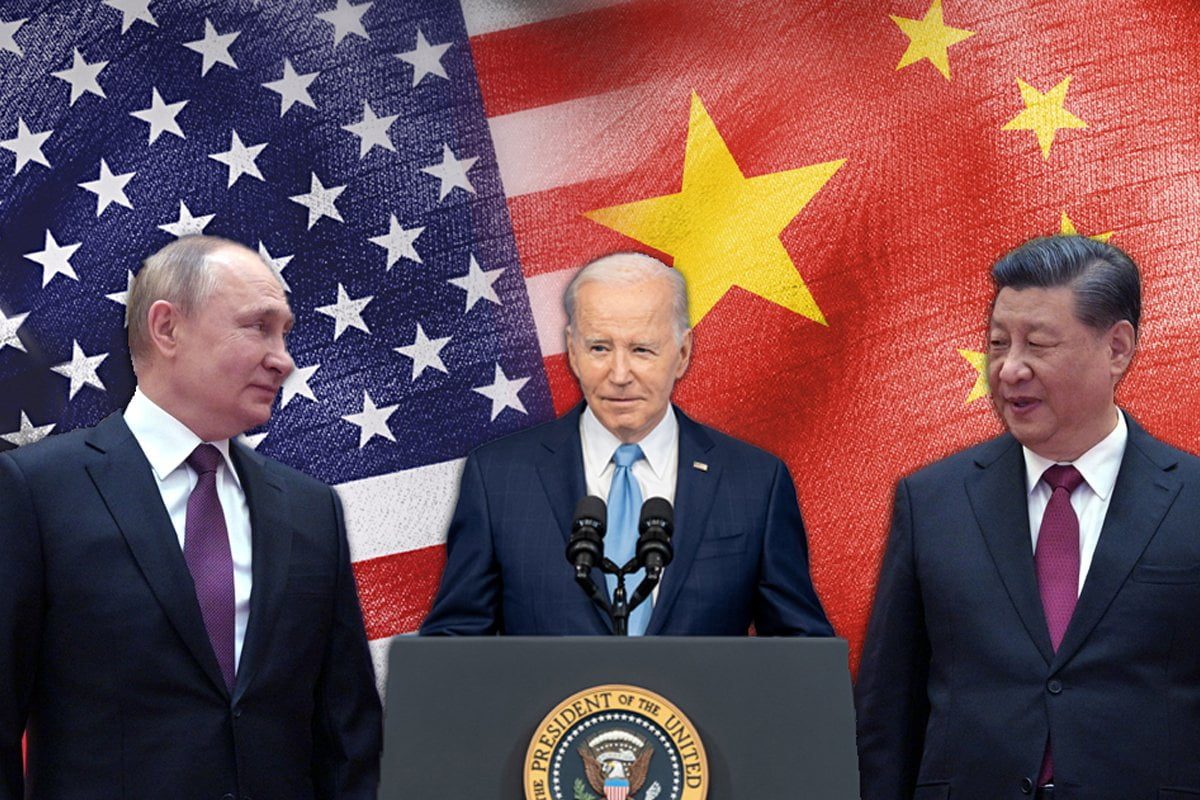
We see the rise of Turkey as one of the dominant powers in the Middle East. Russia and China, having entered the capitalist road, have emerged as formidable imperialist powers with a global reach. This brings them into direct conflict with American imperialism in regard to markets, spheres of influence, raw materials, and profitable investments.
“The wars in Ukraine and Gaza have provided graphic proof of the limits of the power of US imperialism,” states the Manifesto.
The document refers to the threat of war, but explains that world war is ruled out for the present. The capitalists wage war for profit and gain, not for ‘democracy’ and such. In the age of nuclear weapons this would lead to mutual destruction.
Another decisive factor against such an outcome is the mass opposition to war, particularly (but not exclusively) in the USA, given recent experiences.
This certainly does not rule out ‘small’ wars, however, such as in Ukraine. Even then, these have a major impact, increasing global instability. Gaza is also an example of this. The Manifesto quotes the words of Lenin: “Capitalism is horror without end.”
‘Democracy’ discredited
There is a crisis of bourgeois democracy. Instead of the rule of the majority we have the rule of a barely disguised plutocracy, of the bankers and capitalists.
This reality is becoming obvious to many, where there is a contempt and rage against the ruling elite and its institutions.
“As the class struggle intensifies, these institutions will be increasingly exposed and lose whatever respect and authority they may once have possessed,” explains the document.
The attack on democratic rights will intensify as the crisis intensifies. At a certain point, the ruling class will move towards a ‘Bonapartist’ solution, that is to say, the installation of a ‘strong man’ to rule by the sword.
Given the balance of class forces, however, this could only come after a series of severe defeats of the working class.
Well before that, the working class will face many opportunities to take power.
Is there a risk of fascism?
The Manifesto correctly attacks those who hysterically warn of the dangers of fascism at every turn and who confuse what is happening.
The victory of right-wing populism here and there is not fascism, which is a phenomenon based on the mass mobilisation of the enraged petty bourgeois, used as a battering ram to destroy the workers’ organisations.
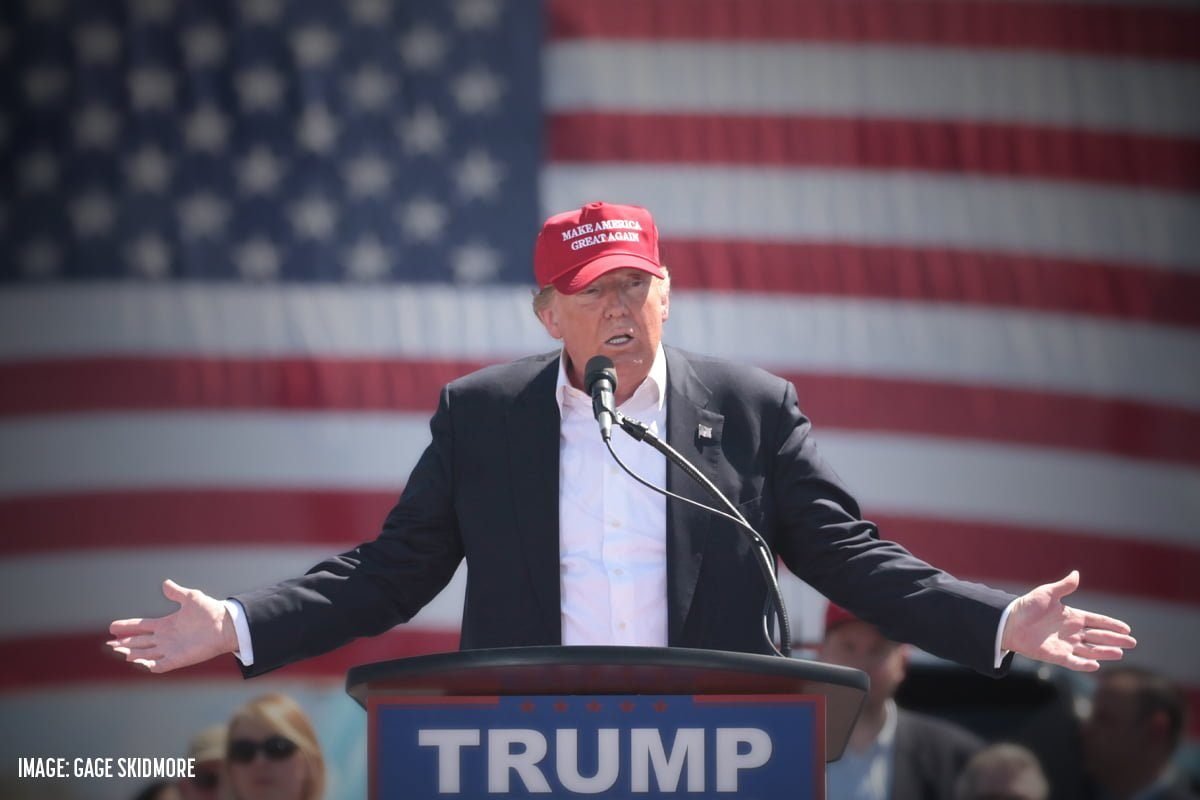
The ruling class burnt its fingers with fascism in the 1930s, and will not lightly repeat the experience.
Above all, the changed balance of forces worldwide means that the social reserves of reaction are far weaker than in the 1930s, and the specific weight of the working class is far greater. The peasantry has largely disappeared in the advanced capitalist countries. White-collar professionals have drawn closer to the proletariat and become unionised.
The students, who in the 1920s and 1930s provided the shock troops for fascism, have swung sharply to the left and are open to revolutionary ideas.
“The bourgeoisie finds itself faced with the most serious crisis in its history, but because of the enormous strengthening of the working class, it is unable to quickly move in the direction of open reaction,” explains the Manifesto.
Capitulation of reformists
The crisis facing mankind is a crisis of leadership, wrote Trotsky. This sums up the situation today.
The right-wing reformists have gone over completely to capitalism, which is no surprise.
The experience of the left-reformists has been just as lamentable, however. They too have capitulated to the pressures of capitalism.
We saw this with Tsipras and Syriza in Greece. The same process can be seen with Podemos in Spain, in the USA with Bernie Sanders, and in Britain with Jeremy Corbyn.
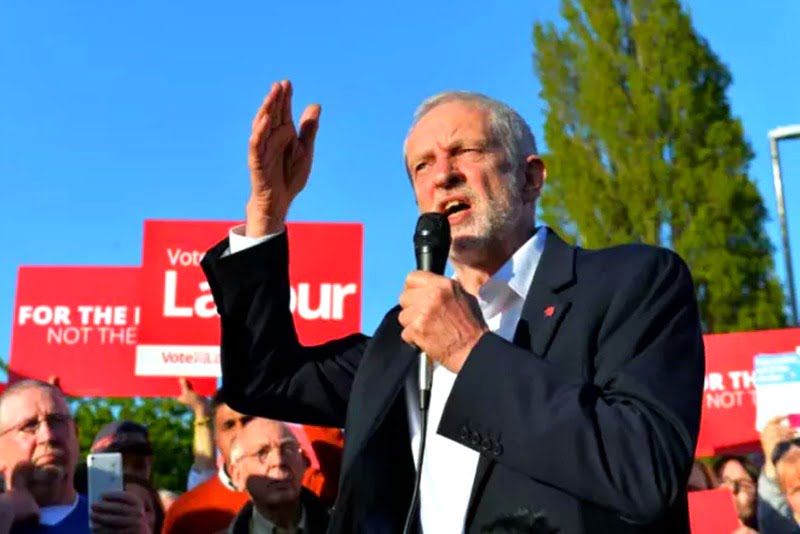
In all these cases, these leaders aroused the hopes of the masses, but then dashed them. This arose from their extreme political weakness.
They believe they can reform capitalism. But in doing so, they capitulate to the pressures and laws of capitalism.
Instead of ‘capitalism’, they talk vaguely about ‘neoliberalism’ – that is to say, ‘bad’ capitalism, as opposed to ‘nice’ capitalism; although they never say exactly what this imaginary nice capitalism is supposed to be.
Their refusal to break with the system, inevitably means they search for an accommodation with the ruling class. This explains their obstinate refusal to break with the right wing – the open agents of the ruling class inside the labour movement – which they try to justify on the grounds of the need to maintain unity.
The logic of left-reformism always leads them to capitulate to the right. However, when the right gains control, they do not display the same timidity, but immediately launch a vicious witch-hunt against the left.
“Thus, cowardice here is not a question of the personal character of this or that individual. It is an inseparable part of the political DNA of left reformism,” explains the Manifesto.
Ideological struggle
While the communists fight against all oppression under capitalism, we utterly reject identity politics.
Under the guise of defending the rights of a particular group, identity politics plays a reactionary and divisive role, and ultimately weakens the unity of the working class and provides invaluable assistance to the ruling class.
The labour movement has become infected with all these alien ideas, which prove to be a most effective weapon in the hands of the bureaucracy in its struggle against the most militant class fighters.
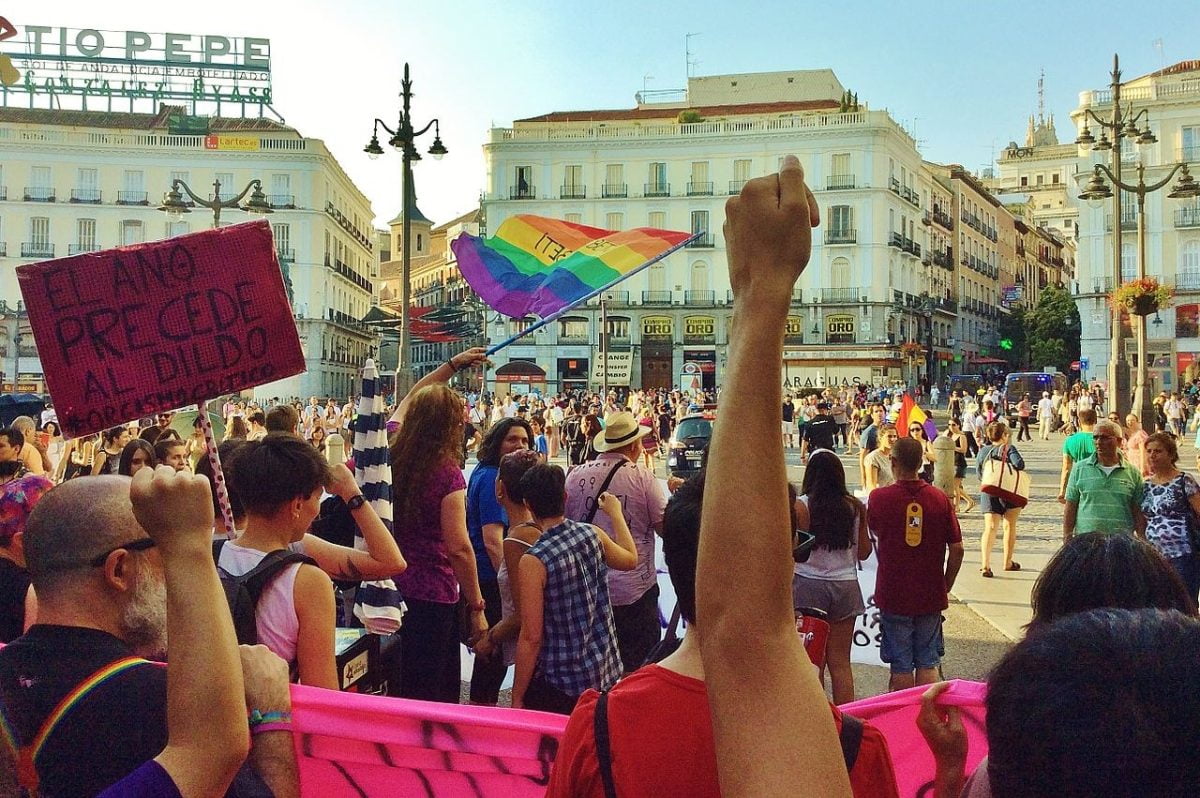
Lenin laid stress on the need for communists to fight on all fronts – not just the economic and political front, but also the ideological front. We stand firmly on the solid foundation of Marxist theory and the philosophy of dialectical materialism.
This stands in complete contradiction with philosophical idealism in all its forms: whether the open, undisguised mysticism of religion, or the cynical, disguised, and no-less-poisonous mysticism of postmodernism.
Communists stand firmly on the ground of class politics and defend the unity of the working class above all divisions of race, colour, gender, language, or religion.
“The only requirement for joining us,” explains the Manifesto, “is that you are prepared and willing to fight for the only cause that can offer genuine freedom, equality, and genuinely human relations between men and women: the sacred cause of the fight to emancipate the working class.”
Shift in consciousness
The era of class peace has vanished. In the trade unions, what is needed is a leadership based upon a full-blooded militancy and a revival of the class struggle. These organisations therefore need to be transformed from top to bottom.
The struggle against reformism does not mean that we are opposed to reforms. We do not criticise the union leaders because they fight for reforms, but on the contrary – because they do not fight at all.
“They seek accommodation with the bosses, avoid taking militant action, and when they are forced into it by the pressure of the rank-and-file, they do everything in their power to limit strike action and reach a rotten compromise in order to end the movement as soon as possible.
“Communists will fight for even the smallest reforms that represent an improvement to the workers’ living standards and rights. But under present conditions, the struggle for meaningful reforms can only succeed to the degree that it acquires the widest and most revolutionary scope.”
The working class is the only genuinely revolutionary class in society. It is the duty of the communists to make conscious the unconscious or semi-conscious striving of the working class to change society. Only the working class has the necessary power to overthrow the dictatorship of the bankers and capitalists.
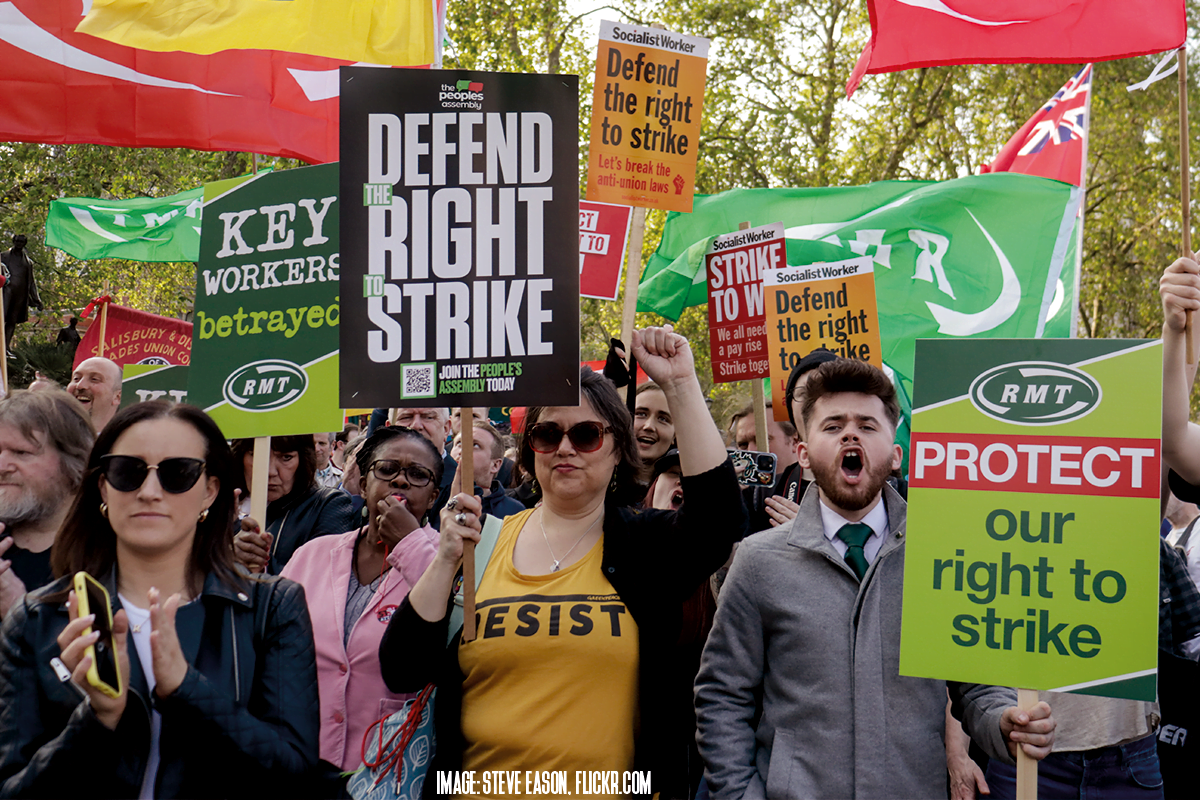
The masses are desperately trying to find a way out of the crisis. And they are testing one option after another. One government, party, and leader after another is put to the test and found wanting and discarded.
But arising out of this, we see a change in consciousness. It is not the kind of slow, gradual change one might expect, but sharp and abrupt changes in consciousness. This especially affects the youth.
As a result, we see a growing interest towards communist ideas among the youth. These young people call themselves communists, although many have never read the Communist Manifesto and have no knowledge of scientific socialism.
But the betrayals of the ‘left’ have made the very word ‘socialism’ stink in their nostrils. It does not resonate any more with the best people. They say: “We want communism. Only that and nothing less than that.”
Is the time right for a Revolutionary Communist International?
The ruling class and its strategists look with dread towards an uncertain and turbulent future. The scene is being set for revolutionary explosions everywhere.
It is in this context, that the need for a revolutionary party with a clean banner and clear revolutionary policies is posed. This must be a world party.
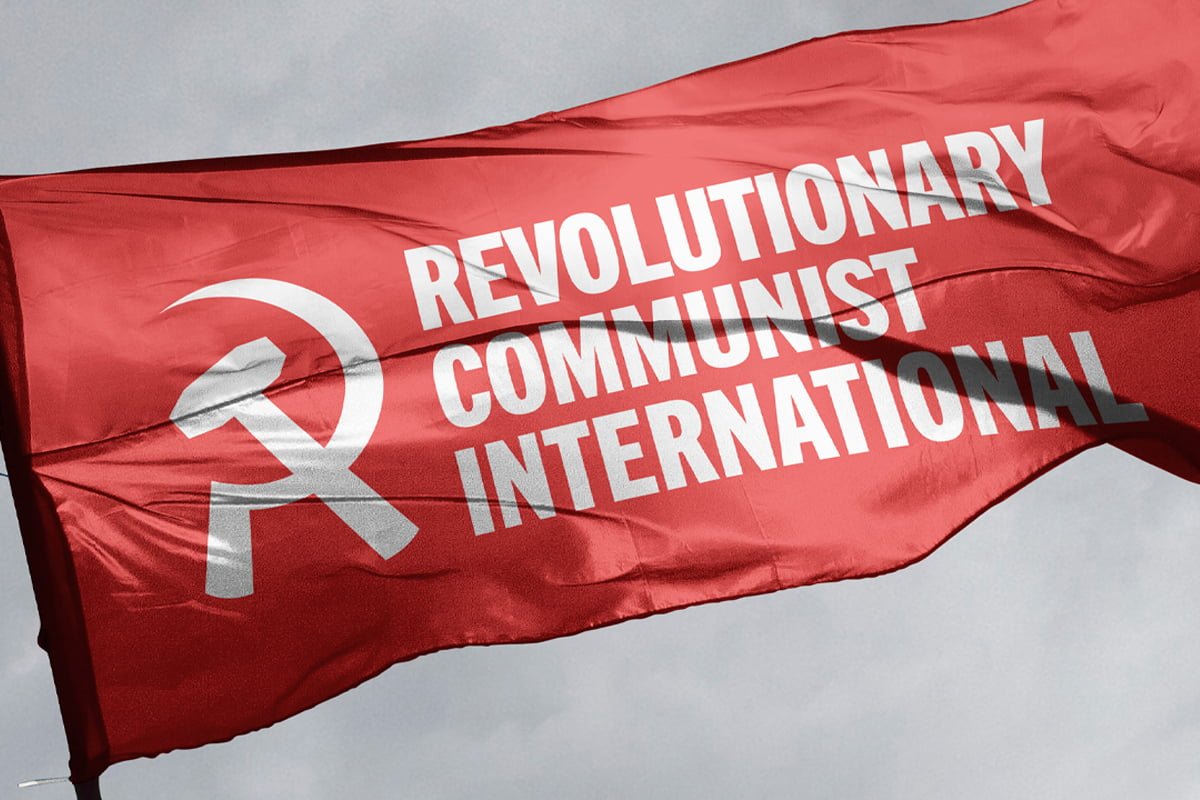
Ever since the Stalinist degeneration of the Communist International, no such organisation has existed.
The Manifesto boldly declares: “Now is the time to launch a Revolutionary Communist International!”
It is rooted in a clear understanding of the objective situation.
There has been a transformation in the outlook, especially of the youth. Poll after poll from Britain, the USA, Australia and other countries provide us with a very clear indication that the idea of communism is spreading rapidly. The potential for communism is enormous.
The task as set out in the Manifesto is to make this potential a reality by giving it an organised expression.
“By organising the vanguard in a genuine Revolutionary Communist Party, by fusing it with a disciplined Bolshevik organisation, educating it in Marxist ideas, and training it in Lenin’s methods, we will build a force that can play a key role in the development of the socialist revolution in the coming period,” states the Manifesto.
That is our task. We must overcome all obstacles in order to achieve it.
Back to Lenin
Stalin carried out a political counterrevolution against Bolshevism, basing himself on a privileged caste of officials that rose to power in a period of the ebb of the revolution following Lenin’s death.
In order to consolidate his counterrevolutionary dictatorship, Stalin was obliged to murder all of Lenin’s comrades and a huge number of other genuine communists. He destroyed the Communist International.
“Stalinism and Bolshevism, far from being identical, are not only different in kind: they are mutually exclusive and mortal enemies, separated by a river of blood.”
The leaders of the so-called Communist Parties of today are ‘communist’ in name only. The leaders of those parties long ago abandoned the ideas of Lenin and Bolshevism. We say: back to Lenin!
Flexible tactics
Of course, our immediate task is not to win the masses, which is something entirely beyond our present capabilities. Our aim is to win over the most-advanced and class-conscious elements. Only in this way can we find a road to the masses.
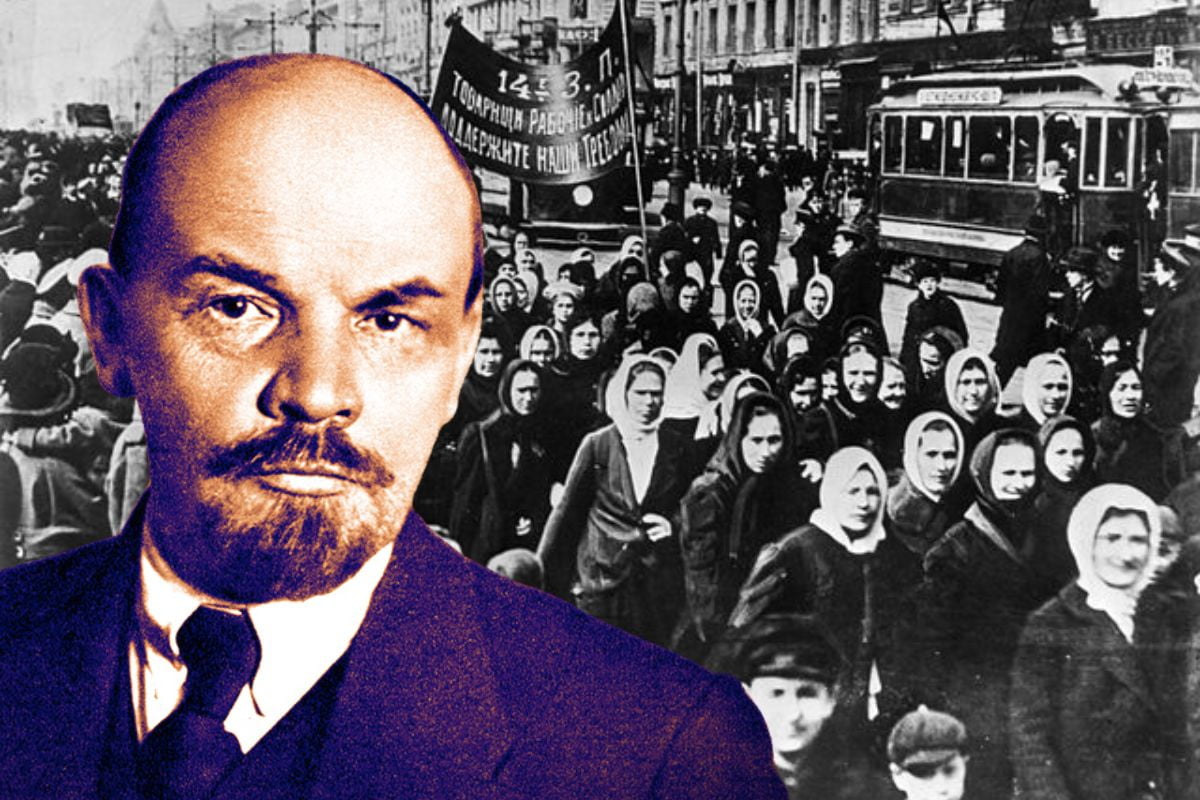
The new generation of workers and youth are looking for a way out of the impasse. The best elements have understood that the only solution lies in taking the road of socialist revolution. But their impatience can lead them to make mistakes.
That is why the questions of strategy and tactics must occupy a central place in the considerations of the communists. Both Lenin and Trotsky had a very clear idea about the relationship of the communist vanguard to the mass reformist organisations.
“We must turn our backs resolutely on this sterile sectarianism and face boldly towards the working class,” states the Manifesto. “By patiently explaining communist policies to the masses and placing demands on the reformist leaders, it is possible to win the reformist workers over to communism.”
Our task is not to snipe at them from the sidelines, but to go through the experience with them, side-by-side, helping them to draw the lessons and finding the way forward, as the Bolsheviks did in 1917.
Build a bridge to the workers!
“We must establish a dialogue with the working class, in which we are seen, not as alien elements or enemies, but as comrades in struggle against a common enemy – Capital. We must prove to them the superiority of communism, not in words but in deeds.”
We must base ourselves on flexible tactics, as did the Bolsheviks. These are determined by concrete conditions. Under certain circumstances, it cannot be ruled out that it may be necessary to send all our forces into the reformist organisations in order to win over the leftward-moving workers to a firm revolutionary position. At the present stage, however, that is not posed.
Even as an independent revolutionary party, the communists are duty-bound to face towards the mass organisations of the working class, pursuing a united front tactic wherever possible, in order to find a road to the masses.
In this, we are guided by the advice of Lenin and the theses of the first four congresses of the Communist International.
While the communists will intervene in the class struggle using the appropriate transitional demands, such a list of demands would be out of place in a manifesto of this nature.
The Manifesto concludes with the words:
“The communists fight for the total emancipation of the working class, for freedom from oppression and agony of toil. This can only be achieved by the destruction of the bourgeois state, the expropriation of the means of production and the introduction of socialist planning under democratic workers’ control and management.
Upon this the future of humanity depends. In the words of the great Irish Marxist James Connolly:
“For our demands most moderate are,
We only want the earth.”Under communism, for the first time in human history, the doors will be flung open to the masses to really grasp the world of culture which has been denied to them. The road will be open for an undreamed-of blossoming of art, music and culture, such as the world has never seen.
For a new world, in which life will acquire an entirely new meaning. And for the first time, men and women will be able to raise themselves to their true stature on the basis of complete equality. It will be humankind’s leap from the realm of necessity to the realm of freedom.
No longer will men and women have to direct their eyes to the clouds in search of a better life after death. They will experience a new world, in which life itself, purged of oppression, exploitation and injustice, will acquire an entirely new meaning.
That is the wonderful thing for which we are fighting: a paradise in this world.”

